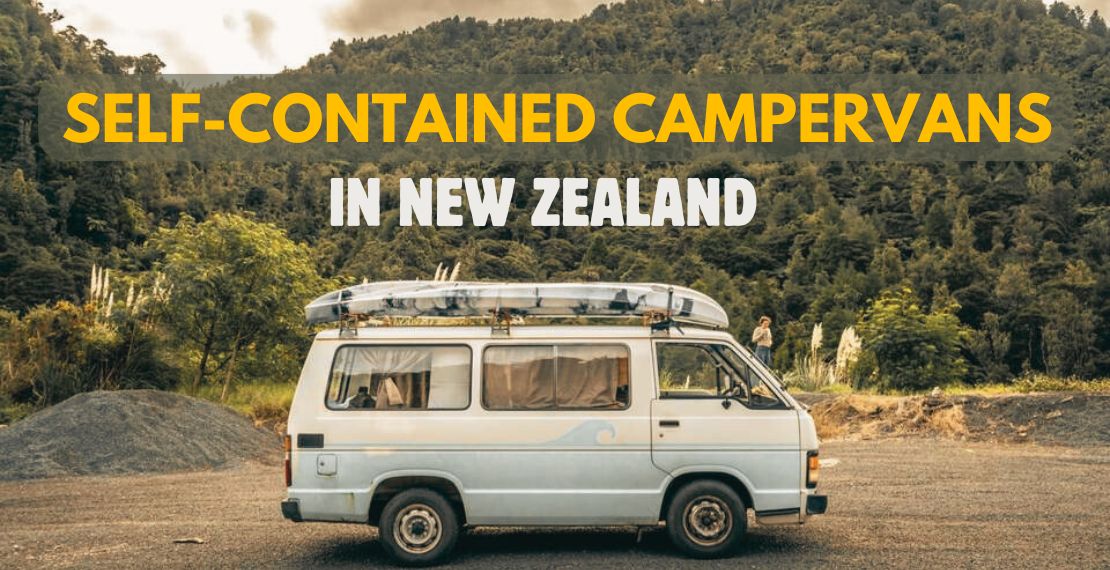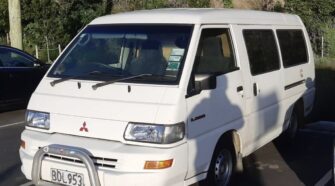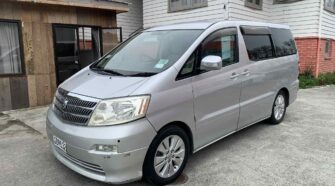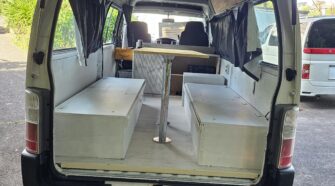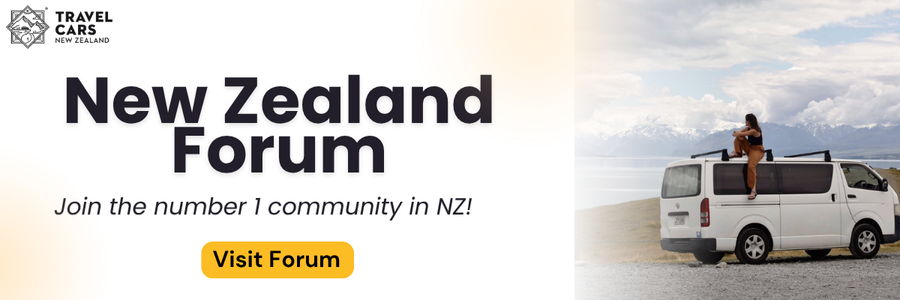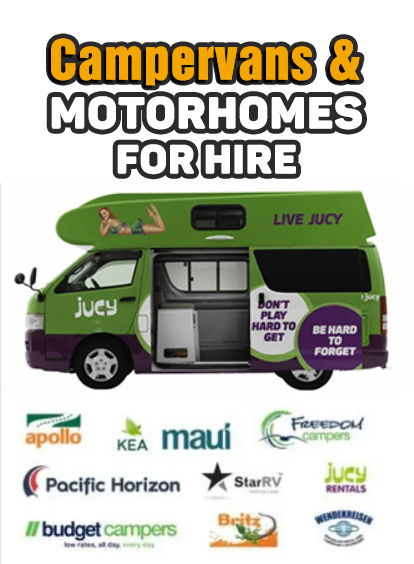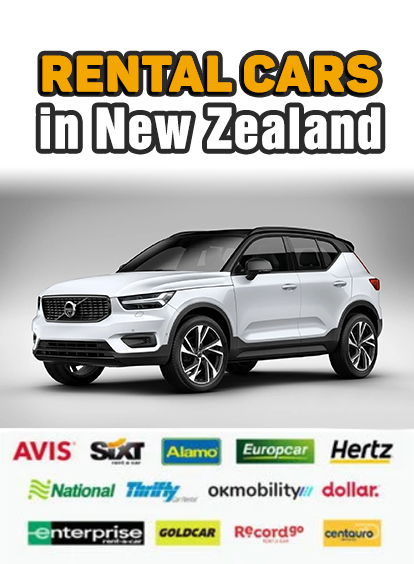✅ Last Update: May 31, 2025 @ 12:10 am
Freedom camping in New Zealand is a major attraction for locals and international tourists, and therefore the so called ‘Self-Contained Campervans’
- Whether you want to invest in a Self-Contained Van or Campervan or just hire one for a short period of time, here you will find everything you need to know about self-contained campervans in New Zealand.
🚐 Where to Find Self-Contained Campervans for Sale
At Travel Cars NZ, you can find self-contained vans, campervans and motorhomes for sale.
These are the most recent listings:
🧑💻 General Information about Self-Contained Campervans
In New Zealand, a self-contained campervan means you’ve got everything you need on board — a toilet, fresh water, and waste tanks. Basically, you can live out of it without needing to use public bathrooms or kitchens.
The big bonus? You can freedom camp in more places, like lakesides, beaches, and mountains — legally! Just look for the green card at the front of the car. That’s your pass to explore NZ the way it’s meant to be: wild, free, and full of epic views.
Self-contained certs last 4 years, and you’ll need an inspection to get one. It’s worth it if you’re road-tripping for real.

📝 Requirements for Self-Contained Certification
Here’s what your van has to have to pass the self-contained test in New Zealand:
1. Fresh water tank – Most vehicles have 20L and 25L containers that last for few days, however with the new regulations there is not a specific number of liters that are needed
2. Sink – It has to drain into a sealed grey water tank through a smell trap (nobody wants stinky van life).
3. Grey water tank – Same size stuff as fresh water: 3-4L per person per day should be good enough. If it’s smaller, it needs vents and a way to keep an eye on levels.
4. Evacuation hose – At least 3 metres long, or long enough to empty into a sealed container without making a mess.
5. Rubbish bin – Needs a sealable lid. Keep it tidy.
6. Toilet – Can be portable or fixed, but must hold 3L per person (enough for 3 days). It has to be secured while driving and usable inside the van — even with the bed made!
🚐 Heads up: 2025 is bringing new rules for self-contained campers. Stay updated so you don’t miss a thing.
🎯 You can find more information about Self-Contained by checking out the following guide: Self-Contained in New Zealand | The Ultimate Guide
✅ Benefits of Using a Self-Contained Van or Campervan
- More space to chill – Self-contained vans usually come with a roomy setup: couches, a table, a little kitchen… everything you need to live comfortably on the road.
- Easy, comfy setup – You can cook, relax, and enjoy the view without leaving the van. Perfect for those rainy days or epic sunset spots.
What about older vans?
Old-school campers – These usually just have a bed in the back. Simple and cozy, but not much else going on inside.
Let’s talk money
- Worth the investment – Self-contained vans might cost more upfront, but you’ll save heaps on camping fees and get way more comfort.
- Cheap or free campsites – New Zealand has tons of freedom camping spots and low-cost campgrounds, which means you can skip the pricey hostels or motels and still wake up to epic views.
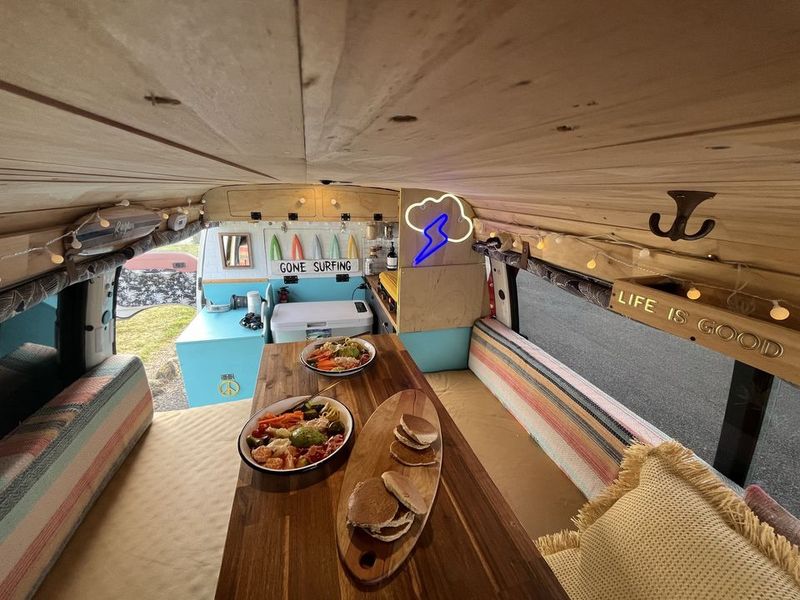
⚠ Avoid Fake Certificates by Local Unlicensed Dealers
When you’re buying a self-contained campervan, make sure it’s licensed, roadworthy, and fully meets New Zealand’s legal requirements.
If you’re buying from a registered car dealer, they should give you all the key info upfront — including the self-containment certificate that matches the sticker on the windscreen.
That certificate should show everything you need to know, and it must be valid on the day you buy the van.
🚐 Get your campervan, caravan or motorhome tested and certified with Travel Cars NZ. Contact us today via Whatsapp on +64 21 303 619
📌 You can also visit us and get your certification in Auckland.
Travel cars NZ works with NZ Lifestyle Camping Ltd., nationwide Certifying Authority. We aim to make the certification process simple and efficient for NZ travelling campers.
💦 Protecting the Environment: Waste Water Disposal
Camping for free in New Zealand is one of the best parts of van life, but there are a few things you need to keep in mind.
Top priority? Always get rid of your wastewater the right way — no dumping in nature. It’s your job to keep this beautiful country clean.
Luckily, there are plenty of dump stations all over NZ where you can empty your tanks safely.
You’ll find them on most camping apps, maps, and at any i-SITE visitor info centre.
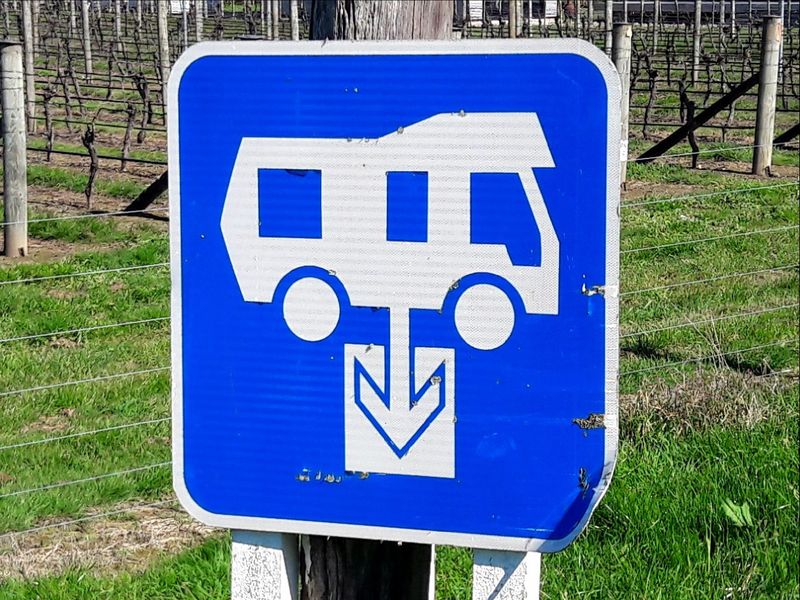
🔍 Should You Buy or Rent a Self-Contained Campervan?
Before making significant investments, weigh the pros and cons of renting versus buying a campervan.
If you only intend to travel for 6–8 weeks, renting is the way.
However, if you have planned a trip that will exceed the 2-month mark, buying and selling a campervan might be the right choice for you.
Selling your newly purchased campervan in peak season would likely see you making 100% of your money back, but even in the winter months, you might be surprised at the return you receive.
💰 More information about buying a campervan can be found here: 12 Tips for Buying a Campervan in New Zealand
If you think renting a self-contained campervan could be a more convenient option, you can use the Travel Cars search tool to find the best deal.
- Make sure the car you book complies with a self-contained certification. Usually, you can find that information on the vehicle listing.
🥇 Top-3 Most Popular Self-Contained Campervans
Forget the fancy brands from Germany, France, or the US—Japanese campervans rule the roads in New Zealand. They’re reliable, easy to fix, and made for adventure.
- Toyota Hiace – Think of it like your favourite pair of jeans: comfy, reliable, and always ready to go. The Hiace is a legend in the van world. Most rental companies love it, and you’ll often find them still going strong even after 300,000 km.
- Mitsubishi Delica or L300 – These vans are solid, rugged, and built to take a beating. Whether you’re off-roading or sticking to the highway, they’re tough enough for whatever adventure you’ve got planned.
- Nissan Caravan – A classic on Kiwi roads. It’s reliable, resilient, and made for long road trips. You’ll see plenty of these out there—because they just work.
Sure, there are a few solid European models out there too, but Japanese vans still lead the game. One heads-up though: Euro repairs can get expensive fast, and no freedom camper wants to blow their budget at the mechanic.
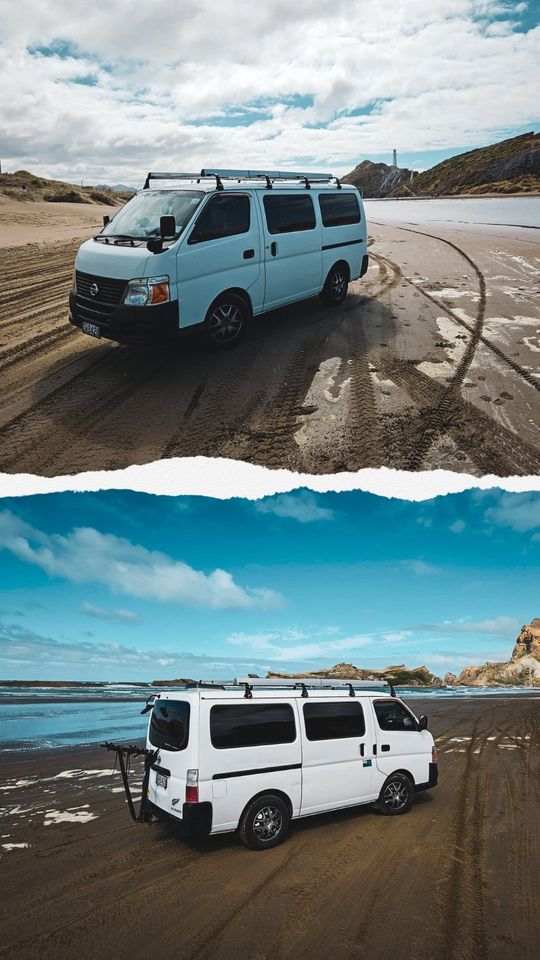
💰 Seasonal Prices for Buying Self-Contained Vans and Campervans
Like the travel scene itself, the campervan market shifts with the seasons. Prices can jump up to 50%, especially during the busy summer months.
But even with those changes, Travel Cars NZ stays one of the most competitive options out there.
Our prices follow the market, sure—but we go the extra mile with 12-month mechanical warranties, on-road assistance, and a buy-back option. That’s why both locals and international travellers trust us for their freedom camping adventures.




